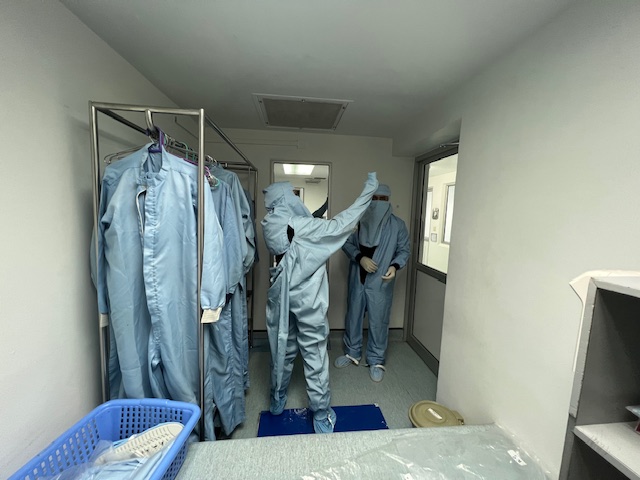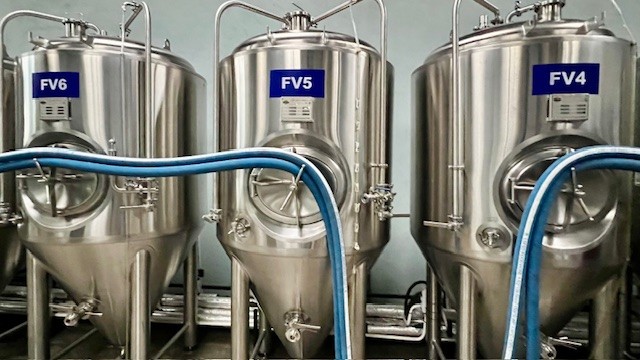By:Dr. Menghis Bairu
Date:April 29, 2024


In the race towards Universal Health Coverage (UHC) in Africa, the integration of biosimilars, particularly monoclonal antibodies (MABs), stands out as a beacon of both hope and innovation. These therapies, pivotal in the treatment of a range of diseases, from cancer to autoimmune disorders, embody the potential to redefine healthcare across the continent. Yet, despite their promise, the accessibility of such treatments remains a significant hurdle.
Biologics are not widely available or affordable in Low- and Middle-Income Countries (LMICs), especially in Africa, where the health systems are often under-resourced and overburdened. According to the World Health Organization (WHO), only 2% of the global biologics market is in Africa, despite the continent harboring 17% of the world's population and 25% of the global disease burden. The barriers to accessing biologics in Africa include high costs, a lack of local production capacity, regulatory hurdles, intellectual property rights issues, and weak supply chains and distribution networks.
The integration of biosimilars into UHC is not merely a health issue; it is a complex challenge intertwined with economic and social implications, directly tied to the Sustainable Development Goal (SDG) 3.8. This goal aims to achieve UHC, which includes financial risk protection, access to quality essential healthcare services, and access to safe, effective, quality, and affordable essential medicines and vaccines for all. However, achieving this target in Africa requires a strategic overhaul of current healthcare policies and an investment in local capabilities.
Local production of biosimilars offers a viable solution by reducing treatment costs while maintaining therapeutic efficacy. Establishing local biomanufacturing facilities can overcome significant barriers to healthcare access by ensuring a more stable supply chain less susceptible to global disruptions and reducing overall medication costs by eliminating hefty import fees and minimizing transportation expenses. Moreover, it fosters health sovereignty and economic upliftment through job creation and the development of local expertise in a high-tech sector.
Despite substantial infrastructural and regulatory challenges, the opportunities—economic independence, improved health outcomes, and job creation—far outweigh the potential drawbacks. There has never been a better time to be proactive in Africa’s biotech sector; the opportunities for transformation and innovation are immense.
The case for biosimilars is also fundamentally a matter of justice. When patients die because there is no cure, it's a tragedy; but when they die even when there is an effective cure because of the cost, it is an injustice. We have the knowledge and the technology to prevent these injustices; what we need now is the collective will to ensure that biologics are no longer a luxury for the few but a standard part of care accessible to all.
This strategic shift towards the local production of biosimilars could dramatically accelerate the achievement of UHC in Africa. By making cutting-edge treatments more accessible and affordable, we move closer to a reality where no individual has to forego essential healthcare. The economic benefits are equally substantial, as a thriving biopharmaceutical sector can significantly contribute to the continent’s GDP.
Countries are already recognizing the value of this approach, with initiatives aimed at enhancing technological transfer partnerships between African nations and global biopharmaceutical firms underway, paving the path for sustainable implementation of biologic and biosimilar production.
The narrative of Africa’s healthcare system is poised for a remarkable rewrite. Biosimilars offer a unique opportunity to bridge the vast chasm between current healthcare capabilities and what is possible under UHC. It is a step toward rectifying global health inequities and empowering African nations not only to meet their healthcare needs but also to emerge as key players in the global pharmaceutical industry. In our collective quest for health equity, the journey of integrating biosimilars into UHC frameworks marks a critical pivot towards a healthier, more resilient Africa.
______________________________________________
Dr. Menghis Bairu is the Co-founder and CEO of Bio Usawa Inc., an organization committed to revolutionizing healthcare access through the local production of affordable monoclonal antibodies, ensuring that no African is left behind in the fight for health equity.
Bio Usawa Honors Globally Recognized Health Strategist, Professor Prashant Yadav, As Chair and Director of Its New Global Access and Health Equity Advis…
December 2025Bio Usawa Inc., a biotechnology company dedicated to developing and delivering high-quality, affordable medicines, today announced the appointment of Pr…
December 2025Menghis Bairu, MD, CEO & President of Bio Usawa, joined the plenary panel of the East Africa Pharma & Biotech (EAPB) 2025 Conference this week, alongsid…
November 2025